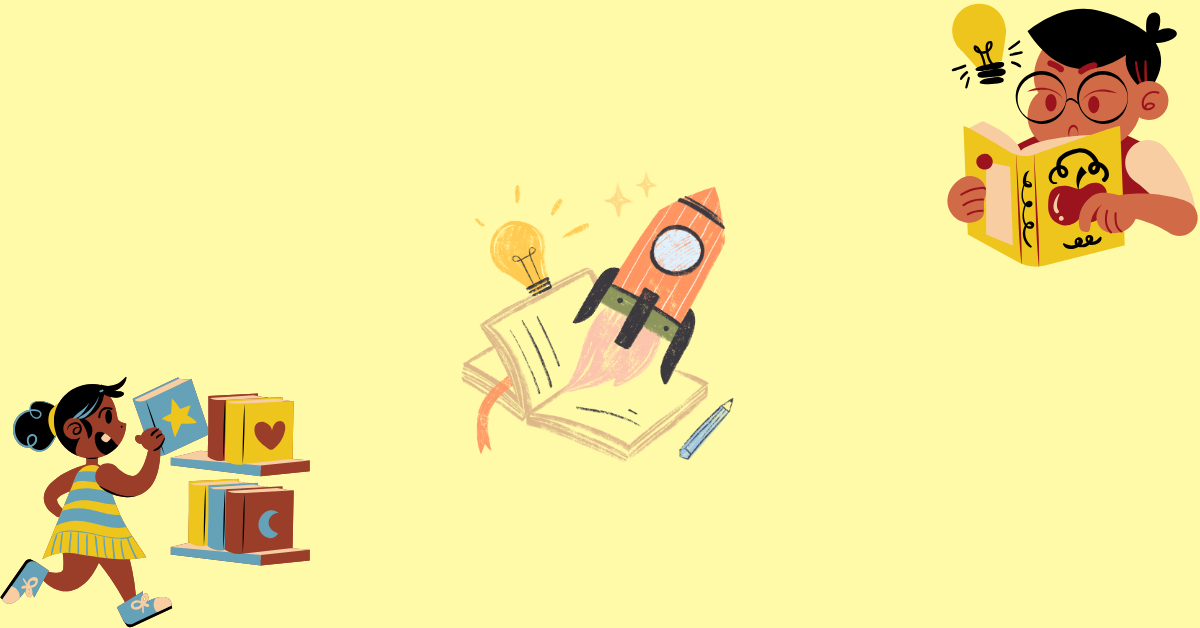Unlike our ancestors — from the beginning of time to the late 1990s — who only had access to the thoughts of those around them, we can access the thoughts of millions of people worldwide. Thanks to the internet! But if you’ve been active online long enough, you’ve definitely come across reasoning that makes you wonder what happened to some in childhood.
Well, what happened is that some of them weren’t introduced to reading early enough.
Let’s unpack that.

Did you know that a child’s foundation for learning can be built long before they step into a classroom? That foundation is an introduction to early reading. Early reading habits prepare children to excel academically. But that’s not all. It also improves their language skills, how their brain works, their creativity and imagination. All these benefits help them better explore new ideas and realities beyond their own. The importance of early reading habits cannot be overstated. It is crucial in shaping the future of young learners. However, people often get stuck on the academic benefits of early reading habits in children when discussing this. We’re here to tell you about some non-academic ones that are just as important.
Language Development
Introducing your child to reading and storytelling early, regardless of your language, helps their vocabulary and understanding of sentence structure. Children who read/are read to speak more fluently and confidently. Do you want your child to be caught in a viral vox pop video unknowingly destroying the English language one day? No? Well, you’d best get them reading then. The enhanced communication skills gained will serve them well throughout their life.
Brain Improvement
Reading helps kids develop their memory, concentration, and problem-solving skills. Engaging with stories helps kids identify patterns, make predictions, and draw conclusions, which improves important cognitive processes for school and beyond. So, part of why reading is important for young Nigerian children is that it’ll make them better prepared for their nation-building journey.
Cultural Awareness
Nigeria is culturally diverse, so early reading is a way to teach kids about their heritage. Reading material that reflects Nigerian traditions, Nigerian history, values, and Nigerian languages instils pride and a sense of belonging in young readers. Additionally, reading can also introduce them to other cultures, helping them develop tolerance and understanding for different people early on. Did you know our I Am A Nigerian In Music book teaches kids about Nigerian musical instruments from across cultures?

Emotional Development
Children who don’t read have a high chance of growing into emotionally unintelligent adults. We don’t make the rules; we just tell it like it is. Through stories, children learn to empathise with characters, understand emotions, and constructively navigate interactions with others. Books also contain tales of bravery, kindness, patience, and perseverance, values your child should embody to live peacefully with others.
Creativity and Imagination
This one goes out to the people who turn their noses up at fiction. Come near and listen to this: exposing your children to stories set in fictional worlds teaches them how to think about realities beyond their immediate environment. In other words, it helps them dream big about a future full of possibilities. So, early childhood reading benefits include fostering the imagination and creativity that will drive future innovators.
Bonding and Social Skills
When you—as a parent, educator, or caregiver—read with a child, it strengthens the bond between you and them. It also works when they do it with other children because reading encourages social interaction. Children are often eager to share their favourite stories with friends, and this builds confidence and communication skills.
Lifelong Love of Learning
Simply put, when children associate reading with enjoyment rather than obligation, they’re more likely to pursue it throughout their lives, not just academically but in different areas of interest. This is one of the key benefits of early childhood reading—it establishes a foundation for lifelong learning and curiosity.
—
To unlock the full benefits of early childhood reading, parents, educators, and policymakers must unite to foster an environment that promotes reading from a young age. By investing in early literacy programs and improving access to books — especially in Nigeria’s rural areas — we can create a transformative impact on children’s futures and, by extension, the future of our society as a whole. After all, as Whitney Houston wisely said, “The children are our future.”
Buy our books here.





Join the discussion One Comment